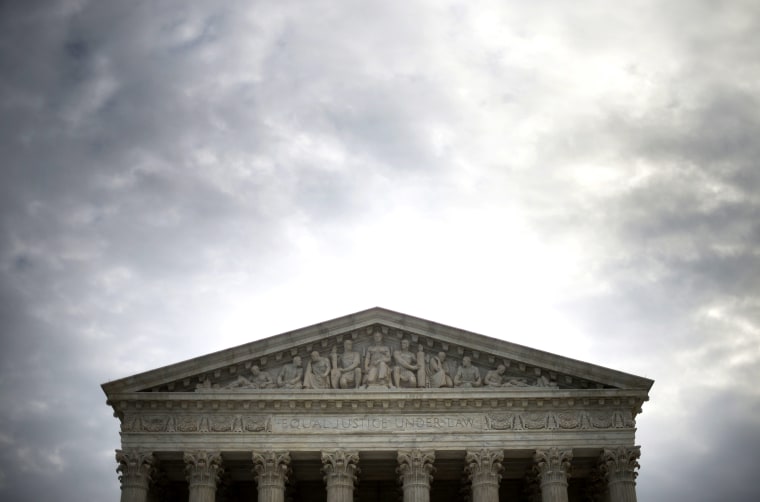Republicans are in an unenviable position. They've started with a problematic conclusion -- President Obama's Supreme Court nominee must be defeated at all costs, regardless of any other consideration -- and now face the challenge of working backwards to come up with a coherent rationale to defend this position.
And given the brazenly partisan tantrum GOP lawmakers and candidates are throwing, that challenge is quite daunting. Their first argument -- high court vacancies in presidential election years are routinely held until after Election Day -- was
quickly discredited.
Which has pushed some Republicans to get more creative. ThinkProgress
noted yesterday that Sen. Rand Paul (R-Ky.), hot on the heels of his failed presidential bid, broke new rhetorical ground on a conservative radio show in Kentucky.
"The president has said he has the power basically to create immigration law out of nothing," Paul said. "He says he has the power to basically cripple entire industries like coal without ever having been given that power by Congress. So see, we have a constitutional debate on whose powers is it, the president or Congress? And I think the president sort of has a conflict of interest here in appointing somebody while we're trying to decide whether or not he's usurped power."
Let that sink in for a moment. There's a vacancy on the Supreme Court; the Constitution empowers the president to nominate a prospective justice; it's the Senate's job to consider that nominee. In Rand Paul's mind, however, President Obama "sort of has a conflict of interest" because the court is sometimes asked to adjudicate the limits of the executive branch's powers.
If only the Constitution's framers had been as wise as Rand Paul, they might have thought of this.
Of course, the flaw in the senator's argument -- well, one of them, anyway -- is that the Supreme Court also considers the constitutionality of laws passed by Congress. Indeed, it's one of the institution's principal functions. By Rand Paul's reasoning, the confirmation responsibilities shouldn't rest in senators' hands at all, since they too "sort of have a conflict of interest."
If we're having a contest to see who's come up with the single most absurd argument against the president filling the court vacancy, Rand Paul's contribution will obviously be a top contender, but the
Washington Post published a competitive rival.
Carrie Severino, chief counsel and policy director for the Judicial Crisis Network and a former clerk for Justice Clarence Thomas, said conservatives are still mourning Scalia. But, she added, "if the president tries to pack the court, as it is apparent he may, then JCN will be leading the charge to delay a Senate vote until the American people decide the next president."
Look, I can appreciate how difficult it is to come up with conservative talking points on this, but let's at least try to stay connected to reality.
The practice of "packing" the Supreme Court has a real definition. As regular readers
know, "court packing" was an FDR-era idea in which the executive branch would expand the number of seats on a bench in order to tilt the judiciary in the president's favor. The idea was floated in the 1930s, but not seriously pursued.
What Obama is proposing -- nominating someone to fill a Supreme Court vacancy -- isn't "packing" the court; it's just following the process dictated by the Constitution. This couldn't be any less complicated or less controversial.
Pick up your game, Republicans. You're a few days into this fight and your arguments are already laughable.
